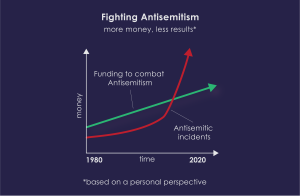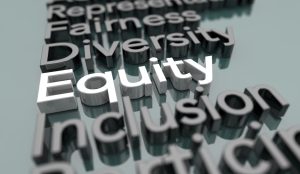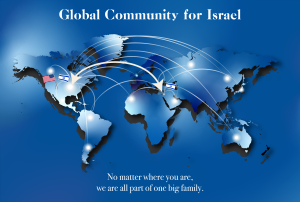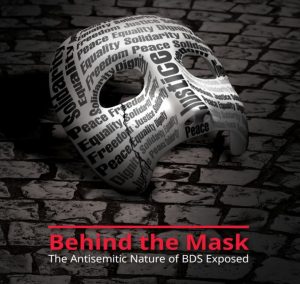This article was originally published in the Jerusalem Post on April 25, 2022, written by Adam Milstein of the Adam and Gila Milstein Family Foundation. For the past two decades major Jewish organizations have been sounding the alarm bells about the exponential rise of Jew-hatred in America and globally. They have been asking their members to financially support them in the fight against the resurgence of this centuries-old disease. But while substantially more philanthropic dollars are being funneled to legacy organization for the purpose of fighting Jew-hatred, it is undeniable that antisemitism is continuing to grow in the United States. According Read More…
This article was originally published in the The National Interest on January 30, 2022, written by Adam Milstein of the Adam and Gila Milstein Family Foundation, James Jay Carafano of The Heritage Foundation, and Elan S. Carr who is a former U.S. special envoy to monitor and combat antisemitism and a visiting fellow at Heritage. A recent Heritage Foundation study found strong anti-Israel bias in the social media posts of “Diversity, Equity and Inclusion” (DEI) officials at colleges and universities throughout the United States. These officials criticize Israel far more frequently and far more severely than they do China. Their posts about Read More…
This article was originally published in the Jerusalem Post on January 17, 2022, written by Adam Milstein of the Adam and Gila Milstein Family Foundation. In early December 2021, I attended the largest Israeli community reunion outside of Israel: the annual Israeli American Council (IAC) Summit in Miami, Florida, where I met, enjoyed, and celebrated the gathering of more than 3,000 members of the pro-Israel community in America and around the world. People of all ages, backgrounds, and interests all showed up to express their love and support for the State of Israel, the homeland of the Jewish people. I was one of Read More…
This article was originally published in the Jerusalem Post on December 26, 2021, written by Adam Milstein of the Adam and Gila Milstein Family Foundation. At the Israeli-American Council (IAC) Summit I recently attended in Miami, I heard from Israeli leaders and ministers that it’s hard for Israelis to relate to the scourge of global antisemitism because… there is no antisemitism in Israel! I was surprised to learn that according to these leaders, the war of attrition and demonization against our Jewish State, led globally by the Boycott, Divestment, and Sanctions (BDS) movement, which Israelis define as de-legitimization, is not viewed Read More…
This article was originally published in the Washington Times on October 27, 2021, written by Adam Milstein of the Adam and Gila Milstein Family Foundation, and James Jay Carafano of The Heritage Foundation. The Democratic Party now faces an important test. Where will it stand when it comes to continuing America’s longstanding, bipartisan support for Israel? Will it banish the far left voices spewing hatred of the Jewish state? Or will these voices eventually become the party‘s mainstream? The answer will determine not only the party‘s cohesiveness but its viability in American politics. Whether they recognize it or not, the Democratic Party is currently undergoing the Israel test, as Read More…
This article was originally published in the National Interest on October 18, 2021, written by Adam Milstein of the Adam and Gila Milstein Family Foundation, and James Jay Carafano of The Heritage Foundation. Opposing funding for the Iron Dome doesn’t support American or Israeli interests. It also reveals disturbing motives from the far left. American politics is like baseball: a curveball could come at you when you least expect it. Who would have bet that while pondering a $3.5 trillion spending bill, a provision to spend $1 billion in support of Israel’s Iron Dome missile defense system would become the Read More…
This article was originally published in the Jerusalem Post on September 11, 2021, written by Adam Milstein of the Adam and Gila Milstein Family Foundation. Good News: Antisemitism is no longer a problem worth combatting Dear friends and colleagues, members of the Jewish-American community: Good News! Antisemitism is no longer a problem worth combatting. This is the assessment of a large number of fellow Jews I’ve reached out to over the past few years. The outreach was part of my effort to recruit others to partner with me in my fight against the world’s oldest hatred, which is now, once again, inciting Read More…
This article was originally published in the 19FortyFive.com on August 12, 2021, written by Adam Milstein of the Adam and Gila Milstein Family Foundation, and James Jay Carafano of The Heritage Foundation. America can’t afford to squander key bilateral relations in the Middle East. Jordan would be near the top of any list of important partners. Recently, Jordan’s King Abdullah II and President Joe Biden had an upbeat meeting in Washington. But even better than smiles and handshakes would be a concerted action plan that better serves the interests of both nations. The meeting suggests there is plenty of opportunity for that. Both sides Read More…
This article was originally published in the Algemeiner on July 12, 2021. Few could have imagined that the current wave of violence against Jews in major American cities would be possible within living memory of the Holocaust. Jews in America now fear walking the streets wearing Jewish artifacts, congregating outside Jewish community buildings, or even speaking Hebrew or Yiddish in public. Shocking and unparalleled scenes of Jews being assaulted by mobs of anti-Israel thugs in New York, Los Angeles, Boston, and other American cities, have begun to ring alarm bells. Early in July, a rabbi sitting outside a Boston synagogue was stabbed eight times by Read More…
This article was published on Aish.com on July 4, 2021. Throughout Jewish history in the diaspora, Jews lived at the mercy of local rulers and largely lacked the ability to defend themselves. Today, however, American Jews have established themselves as one of the most successful immigrant communities in the United States and they also have the State of Israel to rely upon. Yet, in the face of intensifying antisemitism too much focus has been placed on documenting, educating about, and objecting to antisemitic acts after they occur instead of going on the offense. Not enough resources are and were invested in holding Read More…










